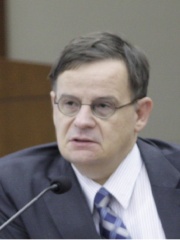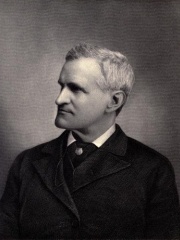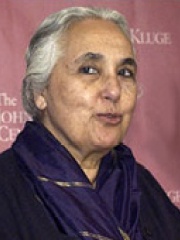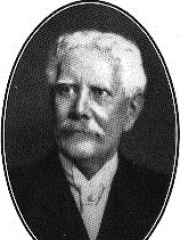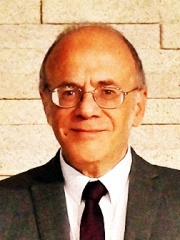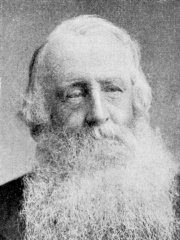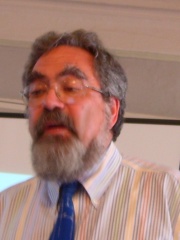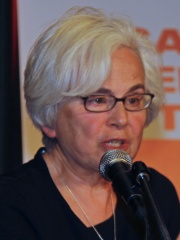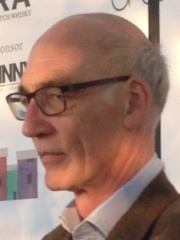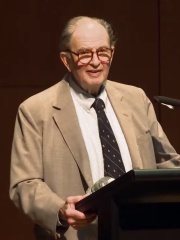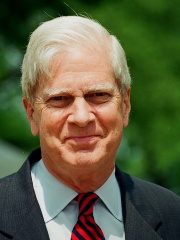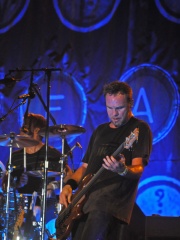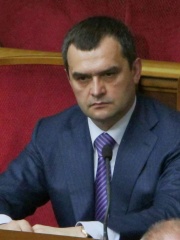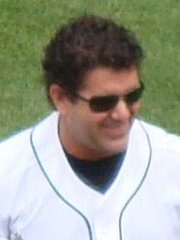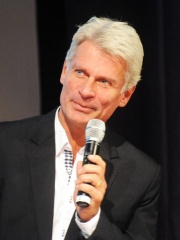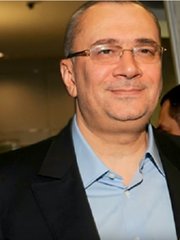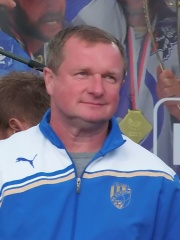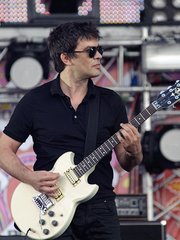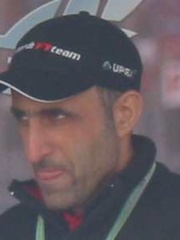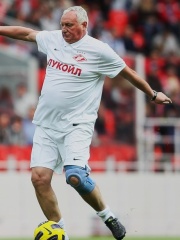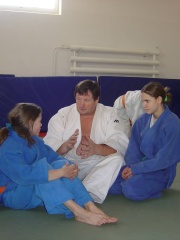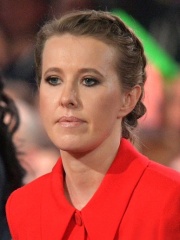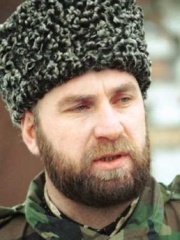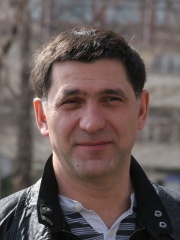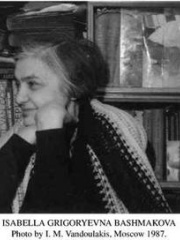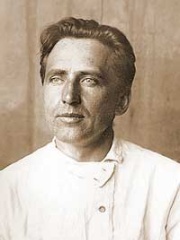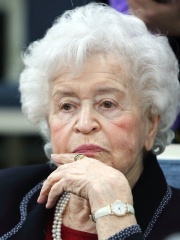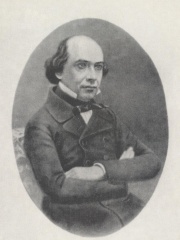Historian
Andrei Lankov
1963 - today
EN.WIKIPEDIA PAGE VIEWS (PV)
 Andrei Lankov
Andrei Lankov
His biography is available in 15 different languages on Wikipedia. Andrei Lankov is the 533rd most popular historian (down from 520th in 2024), the 2,510th most popular biography from Russia (down from 2,367th in 2019) and the 22nd most popular Russian Historian.
Memorability Metrics
Page views of Andrei Lankov by language
Among Historians
Among historians, Andrei Lankov ranks 533 out of 561. Before him are Francis Parkman, Romila Thapar, Charles Oman, Richard Bauckham, Warren Treadgold, and Vasily Struve. After him are Edward Augustus Freeman, Anthony Grafton, Ellen Meiksins Wood, Iain Pears, Bernard Bailyn, and James H. Billington.
Most Popular Historians in Wikipedia
Go to all RankingsFrancis Parkman
1823 - 1893
HPI: 51.34
Rank: 527
Romila Thapar
1931 - Present
HPI: 51.27
Rank: 528
Charles Oman
1860 - 1946
HPI: 51.15
Rank: 529
Richard Bauckham
1946 - Present
HPI: 50.85
Rank: 530
Warren Treadgold
1949 - Present
HPI: 50.81
Rank: 531
Vasily Struve
1889 - 1965
HPI: 50.62
Rank: 532
Andrei Lankov
1963 - Present
HPI: 50.62
Rank: 533
Edward Augustus Freeman
1823 - 1892
HPI: 50.32
Rank: 534
Anthony Grafton
1950 - Present
HPI: 49.92
Rank: 535
Ellen Meiksins Wood
1942 - 2016
HPI: 49.84
Rank: 536
Iain Pears
1955 - Present
HPI: 49.79
Rank: 537
Bernard Bailyn
1922 - 2020
HPI: 49.71
Rank: 538
James H. Billington
1929 - 2018
HPI: 49.62
Rank: 539
Contemporaries
Among people born in 1963, Andrei Lankov ranks 553. Before him are Jeff Ament, Nadia Hasnaoui, Vitaliy Zakharchenko, Dávid Bartimej Tencer, Edgar Martínez, and Peter Fröjdfeldt. After him are Yuri Budanov, Konstantin Meladze, Ronny Rosenthal, Pavel Vrba, Yuri Kasparyan, and Chanoch Nissany.
Others Born in 1963
Go to all RankingsJeff Ament
MUSICIAN
1963 - Present
HPI: 50.70
Rank: 547
Nadia Hasnaoui
PRESENTER
1963 - Present
HPI: 50.69
Rank: 548
Vitaliy Zakharchenko
POLITICIAN
1963 - Present
HPI: 50.67
Rank: 549
Dávid Bartimej Tencer
RELIGIOUS FIGURE
1963 - Present
HPI: 50.66
Rank: 550
Edgar Martínez
BASEBALL PLAYER
1963 - Present
HPI: 50.65
Rank: 551
Peter Fröjdfeldt
REFEREE
1963 - Present
HPI: 50.65
Rank: 552
Andrei Lankov
HISTORIAN
1963 - Present
HPI: 50.62
Rank: 553
Yuri Budanov
MILITARY PERSONNEL
1963 - 2011
HPI: 50.61
Rank: 554
Konstantin Meladze
MUSICIAN
1963 - Present
HPI: 50.61
Rank: 555
Ronny Rosenthal
SOCCER PLAYER
1963 - Present
HPI: 50.60
Rank: 556
Pavel Vrba
SOCCER PLAYER
1963 - Present
HPI: 50.59
Rank: 557
Yuri Kasparyan
MUSICIAN
1963 - Present
HPI: 50.57
Rank: 558
Chanoch Nissany
RACING DRIVER
1963 - Present
HPI: 50.56
Rank: 559
In Russia
Among people born in Russia, Andrei Lankov ranks 2,510 out of NaN. Before him are Yuri Gavrilov (1953), Serhiy Novikov (1949), Sasha Luss (1992), Nikolai Tishchenko (1926), Adam Saitiev (1977), and Vasily Struve (1889). After him are Ksenia Sobchak (1981), Ruslan Gelayev (1964), Svetlana Khodchenkova (1983), Sergei Puskepalis (1966), Valentina Nikonova (1952), and Stanislav Bunin (1966).
Others born in Russia
Go to all RankingsYuri Gavrilov
COACH
1953 - Present
HPI: 50.64
Rank: 2,504
Serhiy Novikov
ATHLETE
1949 - 2021
HPI: 50.63
Rank: 2,505
Sasha Luss
MODEL
1992 - Present
HPI: 50.63
Rank: 2,506
Nikolai Tishchenko
SOCCER PLAYER
1926 - 1981
HPI: 50.63
Rank: 2,507
Adam Saitiev
WRESTLER
1977 - Present
HPI: 50.62
Rank: 2,508
Vasily Struve
HISTORIAN
1889 - 1965
HPI: 50.62
Rank: 2,509
Andrei Lankov
HISTORIAN
1963 - Present
HPI: 50.62
Rank: 2,510
Ksenia Sobchak
WRITER
1981 - Present
HPI: 50.62
Rank: 2,511
Ruslan Gelayev
MILITARY PERSONNEL
1964 - 2004
HPI: 50.62
Rank: 2,512
Svetlana Khodchenkova
ACTOR
1983 - Present
HPI: 50.59
Rank: 2,513
Sergei Puskepalis
ACTOR
1966 - 2022
HPI: 50.58
Rank: 2,514
Valentina Nikonova
ATHLETE
1952 - Present
HPI: 50.57
Rank: 2,515
Stanislav Bunin
MUSICIAN
1966 - Present
HPI: 50.57
Rank: 2,516
Among Historians In Russia
Among historians born in Russia, Andrei Lankov ranks 22. Before him are Isabella Bashmakova (1921), Aron Gurevich (1924), Mikhail Artamonov (1898), Irina Antonova (1922), Timofey Granovsky (1813), and Vasily Struve (1889).
Isabella Bashmakova
1921 - 2005
HPI: 55.81
Rank: 16
Aron Gurevich
1924 - 2006
HPI: 55.02
Rank: 17
Mikhail Artamonov
1898 - 1972
HPI: 54.93
Rank: 18
Irina Antonova
1922 - 2020
HPI: 54.91
Rank: 19
Timofey Granovsky
1813 - 1855
HPI: 54.14
Rank: 20
Vasily Struve
1889 - 1965
HPI: 50.62
Rank: 21
Andrei Lankov
1963 - Present
HPI: 50.62
Rank: 22
